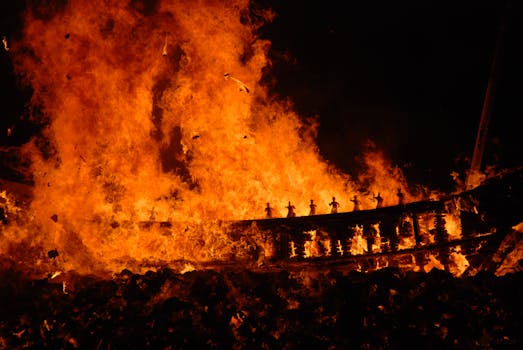Discover the Traditions and Customs of the Villages of Bucovina
Bucovina, a picturesque region in northeastern Romania, is renowned for its rich cultural heritage and vibrant traditions. Nestled between the Eastern Carpathians and the Moldavian Plateau, this area is home to a tapestry of customs that reflect the history and lifestyle of its inhabitants. Among these customs, traditional weddings stand out as a significant cultural event, showcasing the unique practices and beliefs of the Bucovinian people.
The Cultural Significance of Bucovina
Bucovina is characterized by its diverse population, which includes Romanians, Ukrainians, and other ethnic groups. This diversity has contributed to a rich cultural landscape, where traditions are preserved and celebrated. The region is famous for its painted monasteries, folk art, and traditional music, all of which play a vital role in community life.
Traditional Weddings: A Celebration of Love and Community
Weddings in Bucovina are not just a union between two individuals; they are a communal celebration that involves family, friends, and the entire village. These events are steeped in tradition, with rituals that have been passed down through generations. Here are some key elements of traditional Bucovinian weddings:
- Pre-Wedding Rituals: The engagement ceremony, known as “logodna,” is a significant event where families come together to discuss the union. This is often followed by a series of pre-wedding rituals, including the “bătaie de joc,” where friends of the bride tease her in a playful manner.
- The Wedding Day: The wedding day is filled with various customs, such as the “cununie,” where the couple is blessed by a priest. The bride typically wears a traditional white dress adorned with intricate embroidery, while the groom dons a traditional outfit that reflects his family’s heritage.
- Procession and Celebration: The wedding procession is a vibrant affair, with music, dancing, and traditional foods. The couple is often accompanied by a group of musicians playing folk instruments, creating an atmosphere of joy and celebration.
- Post-Wedding Traditions: After the wedding, the couple participates in a series of rituals that symbolize their new life together. This includes the “sărbătoare,” a feast that brings together family and friends to celebrate the couple’s union.
Traditional Attire: A Reflection of Heritage
The attire worn during Bucovinian weddings is a significant aspect of the celebration. Traditional clothing is often handmade and features intricate patterns that represent the wearer’s family and region. For brides, the dress is typically white or cream, adorned with colorful embroidery and lace. Grooms wear a white shirt with a black vest and trousers, often complemented by a traditional hat.
Food and Drink: A Culinary Journey
No wedding in Bucovina is complete without a feast that showcases the region’s culinary delights. Traditional dishes served at weddings include:
- Sarmale: Cabbage rolls filled with minced meat and rice, often served with sour cream.
- Mămăligă: A cornmeal dish similar to polenta, typically served as a side.
- Papanasi: A sweet cheese dumpling dessert, often topped with sour cream and fruit preserves.
Local wines and spirits, such as țuică (a plum brandy), are also integral to the celebration, symbolizing hospitality and abundance.
Case Studies: Modern Adaptations of Tradition
While many Bucovinian weddings adhere to traditional customs, some couples are incorporating modern elements into their celebrations. For instance, a recent wedding in the village of Suceava featured a blend of traditional and contemporary music, appealing to both older and younger generations. This fusion not only honors the past but also reflects the evolving nature of Bucovinian culture.
Conclusion: The Enduring Legacy of Bucovinian Traditions
The traditions and customs of Bucovina, particularly those surrounding weddings, offer a fascinating glimpse into the region’s cultural identity. These celebrations are not merely personal milestones; they are communal events that strengthen bonds between families and the community. As Bucovina continues to embrace modern influences, the essence of its rich heritage remains alive, ensuring that future generations will carry forward these cherished traditions.
In summary, Bucovina’s wedding customs are a vibrant reflection of its cultural diversity and historical significance. From pre-wedding rituals to the festive celebrations that follow, each aspect of the wedding is steeped in meaning, showcasing the region’s unique identity and the enduring power of tradition.
